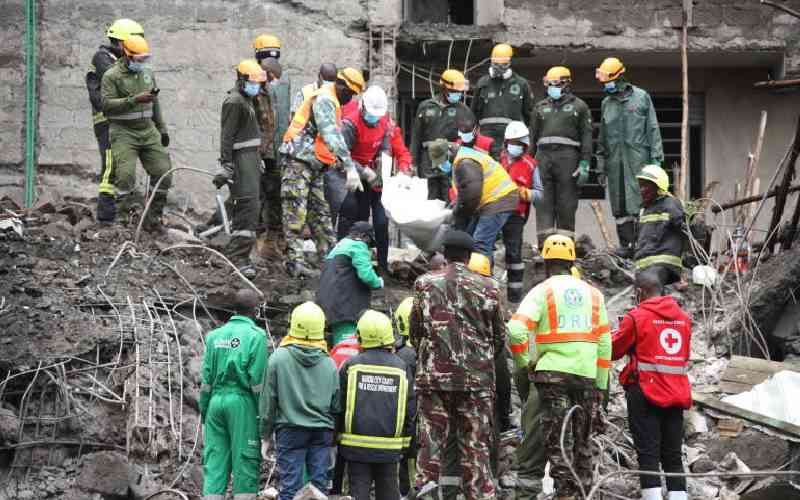×
The Standard e-Paper
Join Thousands Daily

In January 2015, a seven-storeyed building collapsed in Nairobi's Huruma Estate, killing three people and injuring dozens.
The incident took place at 8pm on a Sunday night during a sustained downpour and caught residents completely unprepared. It also came less than three weeks after a four-storeyed building, housing more than 30 families, came down in Makongeni, killing one person and injuring dozens.